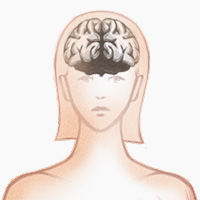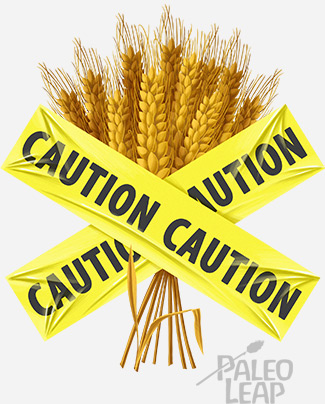5 Paleo-Friendly Diet Strategies with Research-Backed Antidepressant Effects
from web site

Just to be clear: none of this is intended as a substitute for seeing an actual doctor or following a doctor-created treatment plan for any kind of mental health issues. Diet changes are nice, but they aren’t the same thing as seeing an actual medical professional – especially since all of these are just studies showing what helps the average person, not advice tailored specifically to you individually.
But with that in mind, there’s been a huge amount of research on diet and mental health. It’s cool to consider some of these things as potential supplements to a real treatment plan from a doctor, and for people who started Paleo and realized how much better they felt mentally, this might explain a thing or two! Here’s a look at 5 studies on Paleo-friendly diet strategies that reduced symptoms of depression.
(Note that these aren’t all in people who were diagnosed with depression or anything else – it’s all about the symptoms people experienced, not the diagnosis they got. If people tried an intervention and felt less sad or hopeless, regardless of whether they technically had a diagnosis of depression or not, it counts!)
1. Eliminating gluten
This study looked at men with non-Celiac gluten sensitivity – in other words, they didn’t have Celiac disease, but they still cut out gluten from their diet, claiming that they “felt better.” These men didn’t actually have any digestive symptoms in response to a gluten challenge, so the researchers were kind of puzzled by what they meant by “feeling better.” To figure it out, the authors randomly challenged the men with either gluten-free food or foods with hidden gluten, and found that:
“Short‐term exposure to gluten specifically induced current feelings of depression with no effect on other indices or on emotional disposition.”
In other words, even if it doesn’t cause any digestive symptoms, gluten might still cause psychological symptoms in people who are gluten-sensitive.
How does that work?
The study authors suggested that eating gluten might impair the production of brain serotonin. Basically, to make serotonin, you need tryptophan, but the synthesis of tryptophan is very sensitive to food proteins, including gluten – take away the gluten, and those brain chemicals might just work a little better. The opioid peptides in wheat might also be responsible for part of the effect.
2. Probiotics
Probiotics are basically bacteria designed to be good for your gut biome. Here, the patients got either a probiotic supplement or a placebo for 8 weeks – by the end of the 8 weeks, the patients in the probiotic group had significantly lower scores on the Beck Depression Inventory. (As a bonus, they also saw improvements in insulin metabolism.)
A meta-analysis of the issue confirmed the value of probiotics for symptoms of depression, especially for younger people (the effect was clinically significant for people under 60). here’s another review finding the same thing: “The evidence for probiotics alleviating depressive symptoms is compelling.”
How does that work?
Most likely, it’s all in the gut. The vast majority of your serotonin – that’s an important chemical for regulating mood and mental state – is made in the gut, and gut health is huge for overall mental stability and well-being. If your gut is happy, you’ll be happy too, and probiotics tend to make most people’s guts pretty happy.
3. Omega-3 Fats
Another promising nutrient for better mental health is Omega-3 fat – that’s the kind found in fish and seafood. A review of clinical trials found “significant clinical benefit of omega-3 PUFA treatment compared to placebo.”
This review expanded that to look at not just Omega-3 supplements but also actual fish. The study didn’t look at clinical trials, but did analyze observational studies (research where scientists make associations between certain dietary patterns – like eating fish – and health outcomes – like depression). The review and meta-analysis indicated that eating Omega-3 fats was associated with a lower risk of depression, no matter whether those fats came from supplements or from real fish.
How does that work?
The study offered two reasons:
4. Vitamin D

Or, instead of taking supplements, you could go out and get some vitamin D the old-fashioned way!
For vitamin D, the results are more mixed. This review and meta-analysis found that it worked – but only in people with clinically significant depressive symptoms. In people with more mild symptoms, the effect wasn’t noticeable. It also may not be very effective for people with sufficient vitamin D levels at baseline.
On the other hand, this review found that when the authors only analyzed high-quality studies, there was a significant effect. And even more interestingly, some studies suggest that vitamin D might be great for seasonal affective disorder specifically even if it doesn’t do much for depressive symptoms in general. Seasonal affective disorder is when people feel depressed specifically in the winter.
How does that work?
Vitamin D regulates the production of critical brain chemicals like dopamine, adrenaline, and noradrenaline; it also helps protect the brain against depletion of dopamine and serotonin, according to this review.
5. Zinc
Zinc is a mineral found in oysters, beef, most other meats, and nuts. People diagnosed with depression generally have lower levels of zinc, and a meta-analysis of the effects of zinc found solid evidence that it works as a supplemental treatment to antidepressive drugs. Another study in overweight or obese patients found that zinc supplements significantly reduced depressive symptoms (measured again by the Beck Depression Inventory).
How does that work?
Possibly by increasing the amount of Brain-Derived Neurotrophic Factor (BDNF) in the blood – or at least that’s what the last study measured. BDNF is critical for learning and long-term memory, and people diagnosed with depression tend to have lower levels of BDNF, so it’s reasonable that increasing BDNF levels might have some therapeutic benefit.
Diet is more than nutrients
Just to sum it all up, this study has a helpful reminder:
“It is imperative to remain mindful of any protective effects that are likely to come from the cumulative and synergic effect of nutrients that comprise the whole-diet, rather than from the effects of individual nutrients or single foods.”
Absolutely true – everything you eat affects everything else you eat. More general diet interventions have also proven effective: this study in people with diabetes found that an intensive lifestyle intervention including both diet and exercise reduced symptoms of depression. And independently of diet, exercise definitely is good for mental health in all kinds of ways! Eating for better mental health – or any other health benefit – isn’t really about cherry-picking wonder nutrients; it’s about the whole diet and how well it works for you overall. But at least these five suggestions (eliminating gluten, Omega-3 fats, probiotics, zinc, and vitamin D) offer one place to start troubleshooting.
Have you tried incorporating one of the interventions above into your diet for mental health? How did it go? Got any other great tips to share? Let us know on Facebook or Twitter!

Source: https://paleoleap.com/5-paleo-friendly-diet-strategies-antidepressant-effects/
